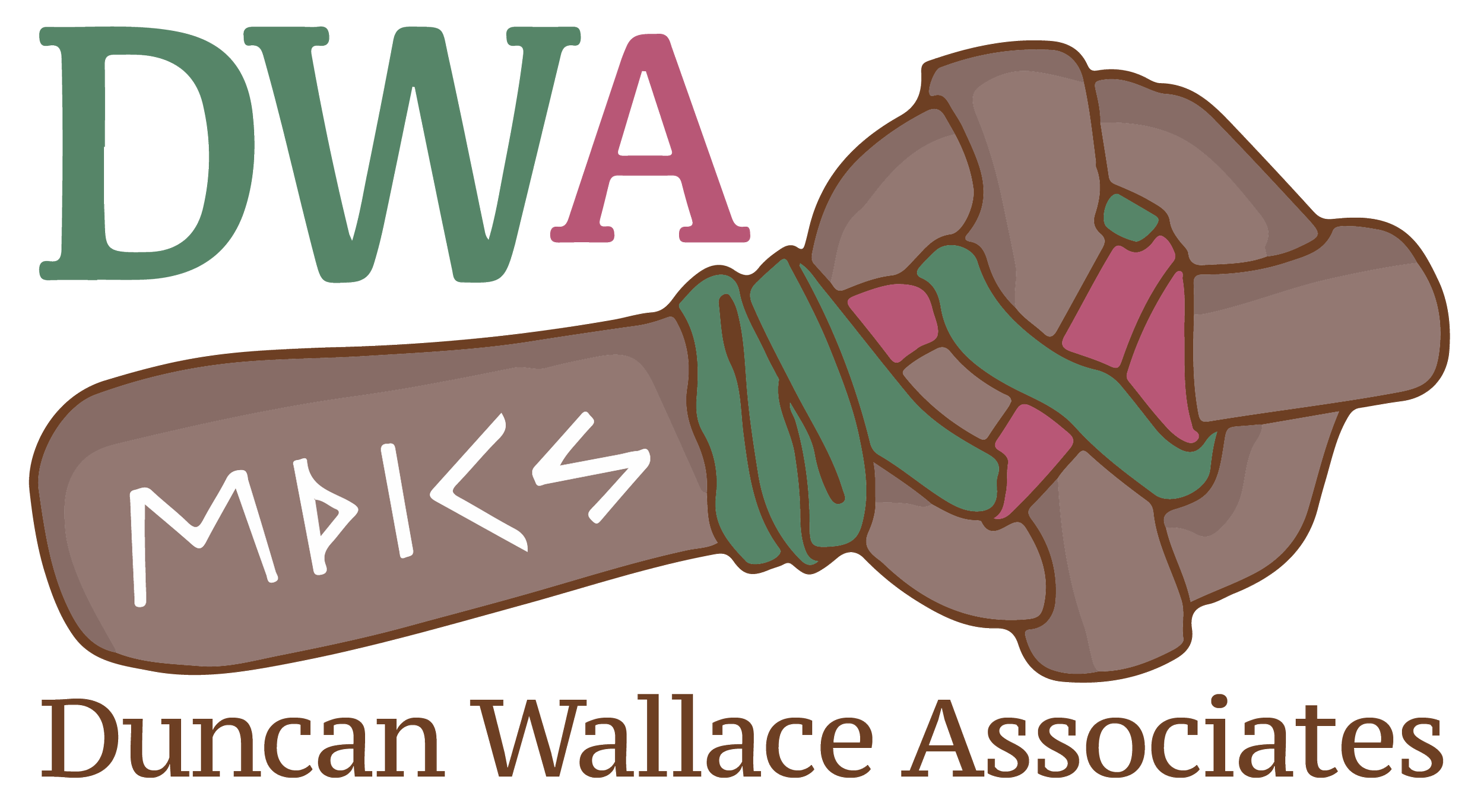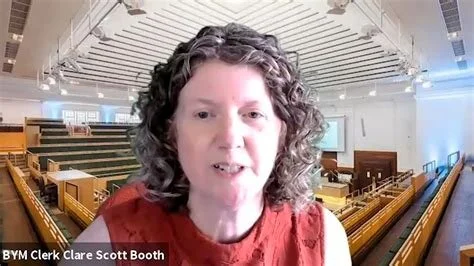Being a Quaker in Business
Each year Quakers in Britain gather in a format called British Yearly Meeting (BYM). This ends with a piece of writing, a statement, that has been written during the gathering, which captures for all of us what it is the sense of being a Quaker in Britain right now. This statement is written as an ‘Epistle’, it is often read out in every Quaker meeting in the months on from BYM, as in our idea of being a member, we are expected to listen to the wisdom of the gathered meeting and follow its guidance.
This statement speaks for me and to me. (and also for Dame Judi Dench by our understanding of membership). It resonates with what I feel being a Quaker is in 2021, reflecting the themes I am concerned about, and as a Quaker in Business as well as a member of Quakers in Business, i hope my business can be a force for good in these ways.
8th August 2021
We send loving greetings to Friends everywhere
We have no time but this present time Friends in Britain have gathered online at this time of great upheaval, amid the pandemic, climate and environmental breakdown, and increasing social inequality and division. We are grateful for technology, and the hard work of Britain Yearly Meeting staff, Agenda and Arrangements Committees, the Woodbrooke team, and others in bringing us together.
At this Yearly Meeting Gathering Friends have considered the theme ‘For our comfort and discomfort: living equality and truth in a time of crisis’. We have been wrestling with what it will mean to be truly committed to anti-racism and faith-based action for climate justice. We have thought about how to better affirm gender diversity in our meetings. We have discovered the challenges of attempting to make statements as a unified ‘we’ in a way that acknowledges the different experiences among us.
We have greatly missed the opportunities of being together as an all-age community that we would have had in a face-to-face Gathering. We held a worship session during which the children and young people shared their exploration of community, climate, equality and truth. Junior Yearly Meeting asked how we could centre justice and equity in our antiracism and climate justice work. Only when all are listened to equally, may all be treated equally.
As in the days of early Friends, we sense this is a time of prophecy and want to uphold the prophets in our midst and in the wider world. We must heed the Spirit’s call to urgent action. Prophets are visionaries, calling out those in power, and reconcilers stand in the middle of conflict: in this both run great risk.
A Friend of Colour spoke in ministry:
All I have ever wanted for the longest time is to feel equal,
and again, here in this room, I don’t.
I hear people talk all week about George Floyd but we are here now,
in the UK, in your meetings, feeling like outsiders every day.
This is not the experience I was promised.
Racism is systemic. To most white people – including white Quakers – it is largely invisible, like the air they breathe. As long as it stays unrecognised, systems and institutions that perpetuate white power are left unchallenged. Racism and oppression are often daily realities for those without the advantages conferred by white skin.
As a Yearly Meeting in session we have declared our commitment to becoming an actively anti-racist faith community.
Our theologians and historians are helping us to root our action in our faith, reminding us of the examples of Friends of the past who have listened to the voice of the Spirit and followed the inward Light. They challenge the complacency of some white Friends’ perception of themselves as ‘good’ people.
We have heard trans and non-binary Friends and their loved ones talk about their gender journeys and of being in Quaker community. Acknowledging trans or non-binary identity can be compounded by unfamiliarity, ignorance and prejudice. Providing support can lead to greater self-acceptance, enabling Friends to flourish and contribute. Belonging is being accepted as one's true self. Who are we to resist what God has created and continues to create in all their glory?
As a Yearly Meeting in session we lovingly acknowledged and affirmed the trans, nonbinary and gender non-conforming Friends in our communities.
It is ten years since Britain Yearly Meeting in session committed to becoming a low carbon, sustainable faith community. Friends across the world have long held a concern for us to live in right relationship with creation. We grieve for the planet we love – our home – but we have no time to despair. We must act with urgency and imagination – the consequences of inaction are upon us.
For those experiencing injustice, the need for transformation is urgent. We know those who have contributed least to climate and ecological breakdown are the most affected: the poor, the global majority, and vulnerable communities everywhere. We recognise and abhor the legion of violent, deadly impacts of economic and exploitative systems on both the people, other species and lifeforms, and the body of our Earth. The climate crisis is fuelled by a system based on growth, consumption and systemic inequalities. If life on earth is to survive we must push for a more democratic, compassionate and equitable world.
Britain Yearly Meeting has asked its central committees to emphasise the urgency of work on climate and ecological justice and to cooperate with others across the world in this task.
Our individual tasks are our Quaker spiritual discipline: loving our neighbour – on our street and across oceans; and caring, cherishing and protecting our natural world. Let’s not be self-conscious about speaking of the Quaker faith that underpins our action.
Friends have talked about the need to let go of stories we tell ourselves about our shared near-400-year history and hold fast to the essence of the Quaker way. Is it time to look afresh at systems, structures, processes and procedures – and possessions like meeting houses that might hold us back? We're already starting to address this by agreeing to change some committee responsibilities next year, and through our Simpler Meetings project.
Our Quaker forebears were wild about their faith. And they challenged the establishment. Suggesting that anyone could have a direct, unmediated relationship with the Divine, and that our relationship with God should not be confined to the steeple house, was revolutionary and upended the status quo. Is it time to rewild our Quakerism?
We will often get things wrong. But we have been comforted by the reminder that Jesus’ disciples often did not understand, they argued with him about who he was and what he should do. When Jesus said, ‘Feed these five thousand’, they said, ‘you must be joking?!’ When it got to the really difficult stuff, they ran away.
Faithfulness is not about always getting it right, it is about committing ourselves to carefully seeing and listening. We need to walk together in the Light, so we can see what we are meant to do and find the strength to do it.
We have been heartened to hear through their epistles that other Yearly Meetings and faith bodies are grappling with the same issues. It is vital we work alongside and be led by Friends and others across the world. We do not have to do things on our own and have learned the value of sharing our skills, resources and insights with each other. We have enjoyed welcoming international and ecumenical visitors, exploring with them common areas of concern. One of the things we have gained through the pandemic is new ways to meet with one another, so that we are no longer limited by geography.
We can meet one another on kinder ground, in our personal relationships, meetings, wider communities, and on social media. We can help create listening spaces using our skills and resources. We can help create a climate where the pursuit of truth is not about becoming dug into our rigid positions.
We need to quietly listen, and tenderly explore difference, disagreement and areas of discomfort, and thereby avoid a false peace. A commitment to truth requires us to be open to new experiences with a readiness to learn, while weighing up what we hear and see through the light of our faith.
There is so much to do but we have been inspired by the prophetic voices we have heard throughout our Gathering. We have pledged ourselves to continue to be a ‘gentle, angry’ people who dare to live for truth and justice in such a time of crisis.
Our Salter Lecturer told us ‘I didn’t choose politics, politics chose me’. She asked us: what work is choosing us at this time? (see lecture by clicking image)
Friends, we have no time but this present time. We should now do what love requires of us.
Signed in and on behalf of Britain Yearly Meeting
Clare Scott Booth, Clerk





